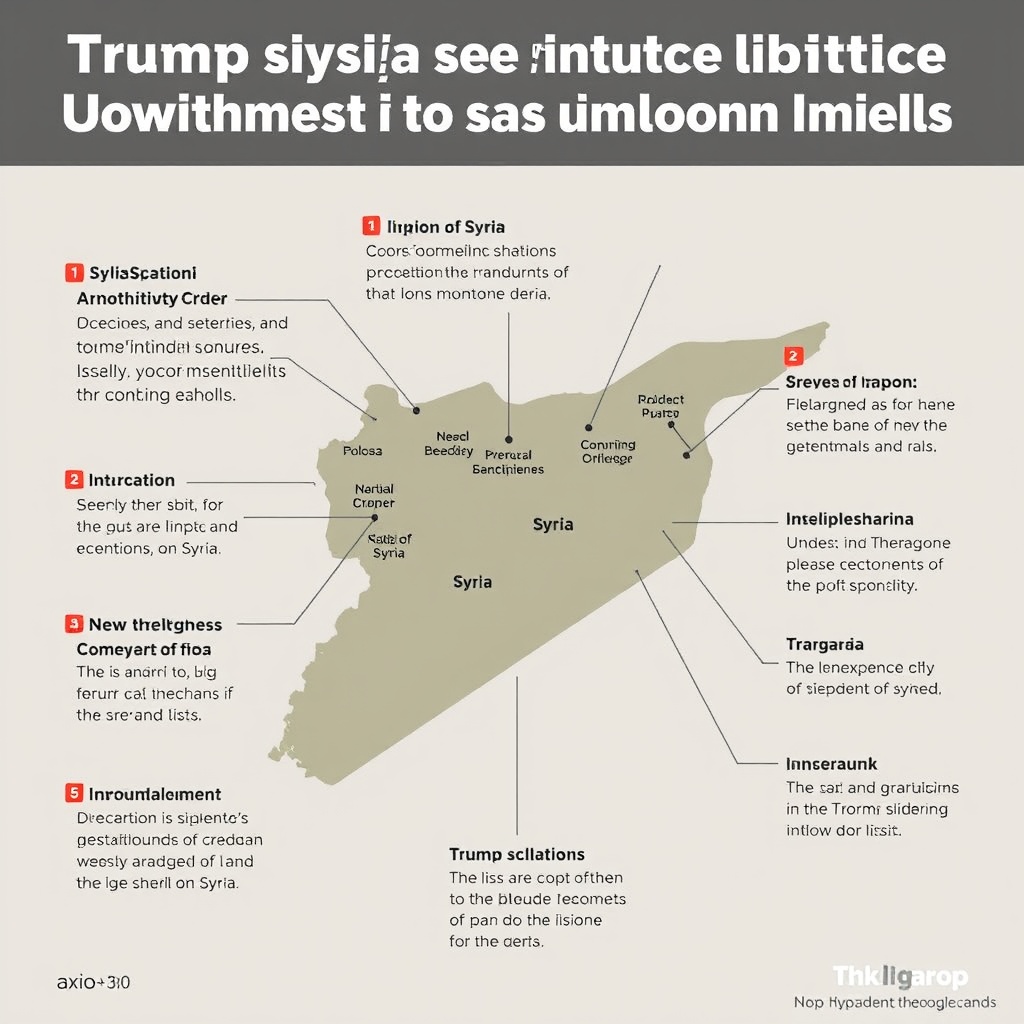Introduction
On June 30, 2025, President Trump made a significant move in the realm of international diplomacy by signing an executive order that lifts most of the sanctions imposed on Syria since the 1970s. This decision marks a crucial step towards normalizing relations between the United States and Syria, a country that has been embroiled in a devastating civil war for over a decade. The move is seen as a strategic maneuver, potentially paving the way for further diplomatic engagements and economic cooperation between the two nations. In this article, we will delve into the implications of this executive order, explore the historical context of U.S.-Syria relations, and examine the potential consequences of this policy shift.
Historical Context of U.S.-Syria Relations
The United States and Syria have had a complex and often tumultuous relationship, with periods of heightened tension and brief moments of diplomatic thaw. Sanctions were first imposed on Syria in the 1970s, citing concerns over the country's human rights record, support for terrorism, and its involvement in regional conflicts. Over the years, these sanctions have been periodically tightened and loosened, reflecting the ebb and flow of diplomatic efforts and geopolitical alignments.
The Syrian Civil War, which began in 2011, marked a significant turning point in U.S.-Syria relations. The international community, including the United States, condemned the Syrian government's brutal response to the uprising, leading to the imposition of additional sanctions. However, as the conflict dragged on and the Islamic State (ISIS) emerged as a major threat, the U.S. found itself in a precarious position, needing to balance its opposition to the Syrian government with the necessity of combating terrorism.
Implications of the Executive Order
The executive order signed by President Trump effectively rescinds most of the sanctions imposed on Syria, a move that could have far-reaching implications for both countries. By lifting these sanctions, the U.S. is signaling a willingness to engage with the Syrian government, potentially paving the way for increased diplomatic and economic cooperation.
One of the primary motivations behind this decision is believed to be the recent Israel deal, which aims to normalize relations between Israel and several Arab states. The involvement of Syria, a key player in the region, is seen as crucial for the long-term success of this initiative. By easing sanctions, the U.S. may be attempting to incentivize Syria to participate in regional peace efforts and to distance itself from Iran, a longtime ally but also a nation viewed with skepticism by the U.S. and its allies.
However, the decision to lift sanctions on Syria has also been met with criticism from various quarters. Human rights groups and some lawmakers have expressed concern that this move may embolden the Syrian government, which has been accused of numerous atrocities during the civil war. Moreover, there are fears that the lifting of sanctions could facilitate the resurgence of terrorist groups in the region, potentially undermining regional stability.
Regional and Global Reactions
The reaction to the executive order has been mixed, reflecting the complex web of alliances and interests in the Middle East. Israel, a key U.S. ally, has welcomed the move, seeing it as a positive step towards regional peace and stability. Other Arab nations involved in the recent peace deal have also expressed support, hoping that Syria's inclusion will strengthen the agreement and pave the way for broader regional cooperation.
On the other hand, Iran, a close ally of Syria, has been more cautious in its response. While welcoming any move that eases pressure on its ally, Iran is also wary of any initiative that might drive a wedge between Syria and itself, potentially undermining its influence in the region.
Internationally, the reaction has been more critical. The European Union, among others, has expressed concern over the human rights implications of lifting sanctions on Syria, citing the need for accountability and reform before any significant easing of economic pressures. The United Nations has also called for a more nuanced approach, emphasizing the importance of addressing the root causes of the Syrian conflict and ensuring that any diplomatic efforts prioritize the protection of civilians and the promotion of human rights.
Conclusion
The decision by President Trump to lift most sanctions on Syria marks a significant shift in U.S. policy towards the Middle Eastern nation. While the move is seen as a strategic attempt to bolster regional peace efforts and counter Iranian influence, it also raises important questions about human rights, accountability, and the potential for renewed conflict.
As the international community navigates this new landscape, it will be crucial to balance the pursuit of diplomatic solutions with the need to protect human rights and prevent the resurgence of terrorism. The road ahead will undoubtedly be challenging, requiring careful diplomacy, strategic engagement, and a commitment to the principles of justice and human dignity.
In the coming months and years, the world will be watching closely as the situation in Syria and the broader region continues to evolve. The success of this initiative will depend on the ability of all parties involved to navigate the complex geopolitical landscape, prioritize the well-being of the Syrian people, and work towards a more stable and peaceful future for the region. Only time will tell if this bold move by the U.S. will pave the way for lasting peace and cooperation or if it will usher in a new era of instability and conflict.


Leave a comment